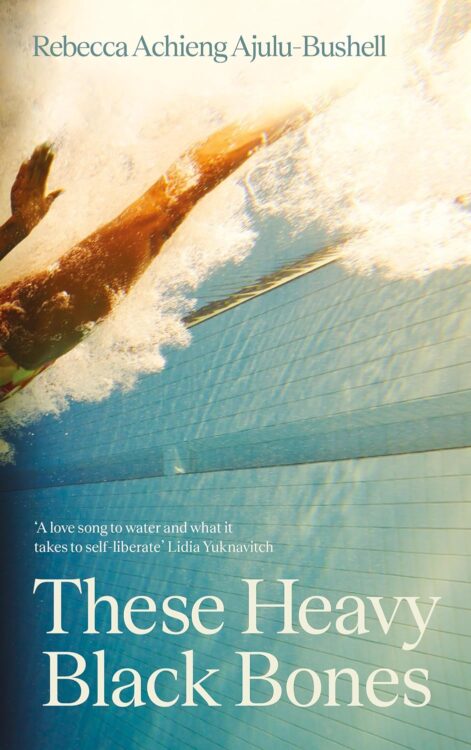‘There’s a lot of bullying’: the shocking life of a teenage elite swimmer
Share
Explore Our Galleries
Breaking News!
Today's news and culture by Black and other reporters in the Black and mainstream media.
Ways to Support ABHM?
By Michael Segalov, The Guardian
Training to be a champion swimmer, Rebecca Achieng Ajulu-Bushell spent her teenage years locked in a punishing world of long hours, body scrutiny, racism and bullying. So can the rewards of elite sport ever justify the sacrifices?

There’s a version of her story that Rebecca Achieng Ajulu-Bushell has learned to tell. One that’s abridged, and feels safe to share; blurred round the edges. “What I do for work today,” she begins, “requires a lot of public speaking. I’m used, therefore, to telling a light version of my history. One for inspiration, or whatever. How I’ve had a lot of experience of being the outsider: the only one, the first. I was the first Black woman to swim for Great Britain; the only Black person in my year doing my degree at Oxford University. I’m often the sole Black woman in the corporate rooms that I’m in today. That bit is easy – the top line, and quite divorced from me.”
It’s Friday lunchtime in her literary agent’s airy West End office. A copy of her new memoir, These Heavy Black Bones, sits on the table between us. It documents the dedication demanded of a young athlete; the sacrifice and strain that comes with competing at the highest of levels. It’s vulnerable and exposing. She’s 30 now. Half her lifetime ago, at the age of 15, Ajulu-Bushell was ranked as the top short-course 50m female breaststroker internationally, of any age. In the run up to London 2012, aged 17, at what should have been the pinnacle of her swimming career, Ajulu-Bushell walked away from her sport, never to return. She writes of the toll it took to be the first; the cost of chasing peak performance. “Speaking about the detail feels more like shaky ground,” she says, tentatively. “I’m still not sure I feel ready. Part of me just wants to run away.”
Training to be a champion swimmer, Rebecca Achieng Ajulu-Bushell spent her teenage years locked in a punishing world of long hours, body scrutiny, racism and bullying. So can the rewards of elite sport ever justify the sacrifices?
Keep reading to learn the answer to that question.
Learn about Black history in our galleries.









Comments Are Welcome
Note: We moderate submissions in order to create a space for meaningful dialogue, a space where museum visitors – adults and youth –– can exchange informed, thoughtful, and relevant comments that add value to our exhibits.
Racial slurs, personal attacks, obscenity, profanity, and SHOUTING do not meet the above standard. Such comments are posted in the exhibit Hateful Speech. Commercial promotions, impersonations, and incoherent comments likewise fail to meet our goals, so will not be posted. Submissions longer than 120 words will be shortened.
See our full Comments Policy here.